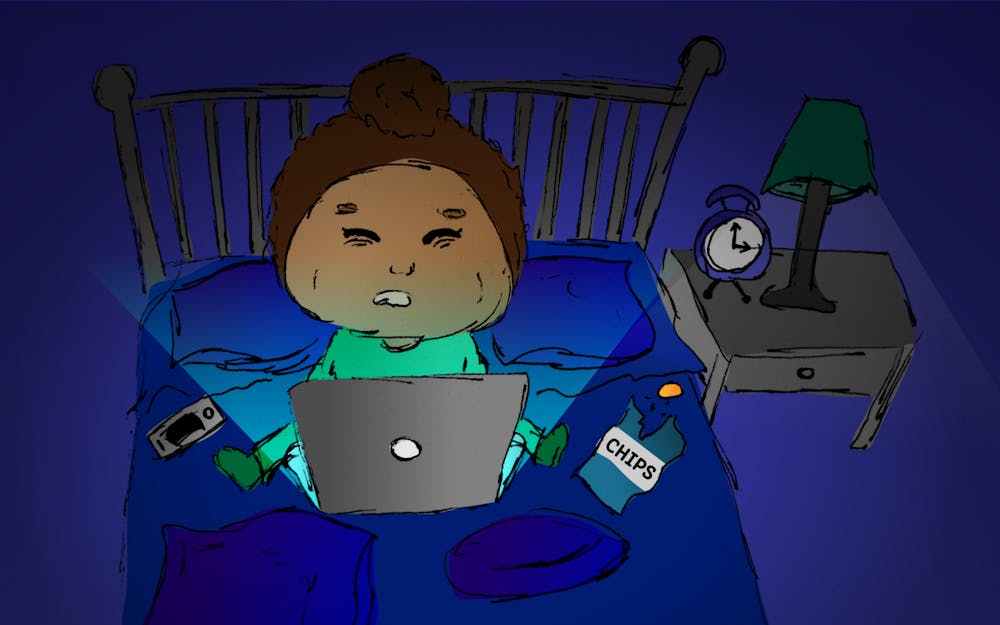Many students are still shut in dorms, socially distanced and anxious about family health, and the heightened COVID-19-related stress has caused their sleep to suffer, IU students said.
The COVID-19 pandemic has caused sleep quality to get worse on a global scale because of increased stress from social isolation, finances and employment, according to a study published in Sleep Medicine in January. The study found an increase in clinical insomnia since the beginning of the pandemic.
Freshman Janna Osborne said to keep up with school work last week, she didn’t sleep for a night.
Additionally, fears of COVID-19 infecting her family have kept her awake before falling asleep usually two or three times a week, Osborne said. She said she does not own a car and worries she would not be able to make the three-hour drive to her parents if they were hospitalized.
Family safety is not the only source of stress for Osborne, a biology major at IU who plans to attend medical school. She said the college workload with the increased screen time of online learning often interferes with her sleep schedule.
“It kind of blurs the lines between school and relaxation and downtime,” she said. “Our dorms kind of become a sort of classroom.”
Osborne said she still experiences issues with improving her sleep despite making efforts to complete work early, set aside around 30 minutes of screen-free time before bed and use her bed only for sleep.
“It's a lot easier said than done because there's a lot of things that are out of your control,” she said.
Osborne said class discussion sections and commitments to student organizations can also increase the college workload. She said she is hopeful for next year’s return to mostly normal campus operations and looks forward to regular trips outside as well as classroom-based learning.
[Related: IU Researchers discover blue light glasses improve work ethic and sleep quality]
Next semester’s return to mostly normal campus operations could help students get out of dorm rooms, Meghan Rimelspach, IU Student Center health promotion and outreach coordinator, said. However, she said factors like parties could keep students up later.
Students have different sources of stress that contribute to sleeplessness, Rimelspach said. The effects of social isolation, financial strain, shifting schedules and a change in living environment can create stress.
The recommended amount of sleep for college students is between seven and nine hours, Rimelspach said. The amount of sleep needed depends on the individual student.
“One way to sort of figure that out is just to check in with yourself and your body,” she said.
She recommended limiting screen time, maintaining a regular sleep schedule and exercising. She also said students could use mindfulness workshops, counseling services and health care coaching to help improve sleep habits.
Insufficient sleep impairs focus, analysis, creativity and memory, assistant professor Cristiano Guarana said. Guarana, who teaches in the Kelley School of Business, researches how sleep influences leadership performance.
Increased risk of strokes, heart attacks and diabetes, as well as increased aggression and moodiness can result from a lack of rest, Guarana said.
He said less sleep can contribute to greater stress – which leads to worse sleep.
For students with sleep disorders, Guarana recommends professional help. IU Health offers resources including IU Health Sleep Center, IU Sleep Disorders Center and IU Health Sleep Apnea Education Center.




